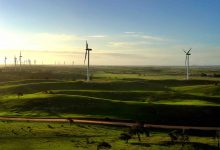Australian listed renewables company Infigen Energy has called out the federal Coalition’s “puzzling policy stance” on energy, describing its plan to underwrite dispatchable generation as a thinly veiled push to finance new coal power plants, and prop up old ones.
In a speech delivered at the company’s 2018 Annual General Meeting, Infigen managing director Ross Rolf, said renewables should “logically and inevitably” play an increasingly significant role in the energy supply industry – but that political ideology and warfare was holding back this transition.
“The direction of change is relatively clear, the rate of change is less predictable,” Rolfe said.
“It would be hastened by obligations for stronger emissions targets for the electricity sector, or potentially slowed by interventionist actions of government.
“In the mid-term, even without taking account of emissions reduction goals, it’s difficult to see a role in the power system for any new high-load factor plants, absent government intervention,” Rolfe said.
“In our view, actions by government which underwrite the entry of such plants or artificially prolong their life, will displace generation from other existing coal plants, and hasten their retirement.
“These actions can only further undermine investor confidence in the integrity of our market, potentially at significant cost to taxpayers and consumers.
“Unfortunately, however, in the current set of political conditions, the prospect of this occurring seems possible.”
Infigen, as David Leitch has noted, has already negotiated some fairly rough seas in the renewable energy market, and “worked hard to steady the ship” – largely by shifting its business strategy to supplying clean energy solutions to a growing base of commercial and industrial customers.
“We believe that underlying market fundamentals should continue to underpin the business strategy we have adopted,” Rolfe said on Friday, noting that in FY19, the company expected to get an average bundled price for the energy it produced of $125-130/MWh.
But, he added, “we live in interesting and uncertain times. Hence decisions concerning the future direction of our business strategy remain under constant review, to take account of the forces that are likely to influence the future market conditions.”
“Predicting the rate of new entrant plant into the market is a complex enough challenge before factoring in the implications of a growing divergence in political positions around the future policy treatment of greenhouse gas emissions, specifically, and energy policy more generally,” Rolfe said.
He said the Coalition’s stance was “puzzling”, given that the electricity sector is among the most flexible industries in terms of its ability to introduce new, low emissions technologies, at a relatively low cost and speed, compared to other sectors.
“The LNP policy of underwriting dispatchable plant appears to be a policy that is really directed towards proponents of new coal-fired power plant or life extension to old coal-fired plant,” he said.
“Should it gain traction, this will likely check the decision-making timetable of a number of proposed renewable projects. It could also reduce the investment proposals for new renewable generation, to replace retiring thermal plant, such as the Liddell power station, hence reducing the number of LGCs entering the market as a byproduct of energy production.”
Rolfe said the National Energy Guarantee, although “not a panacea” had offered some home of a bipartisan energy plan. But that hope had been dashed in the coup that ousted Turnbull.
“The jury remains out on whether a policy phoenix can rise from the smouldering remains of the NEG,” he said.
“From our perspective, any effective policy that can provide sustainable long-term outcomes, should be delivered through market-based principles rather than direct intervention.”










